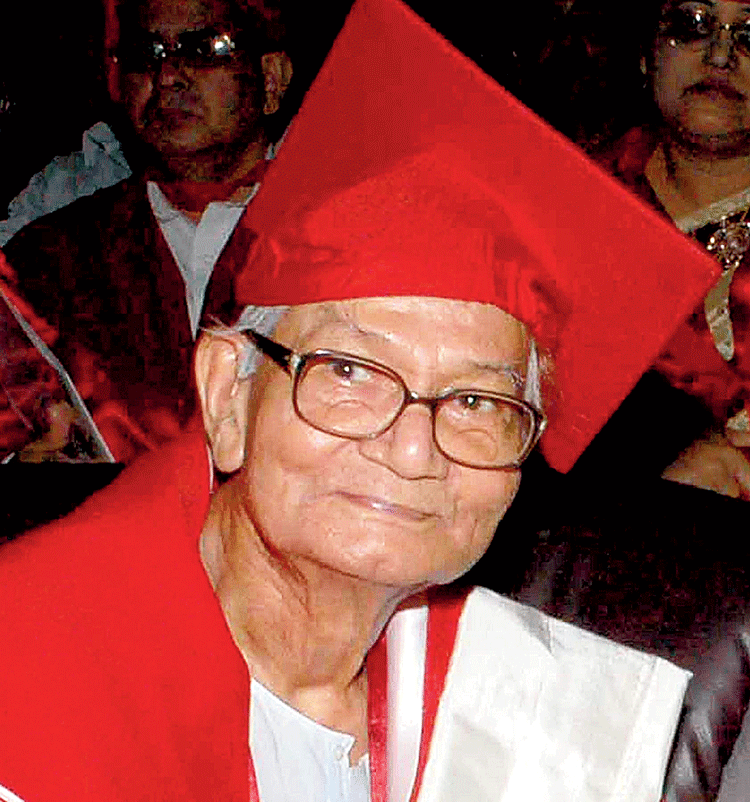Eminent linguist Golok Chandra Goswami, 97, who believed that as long as the Assamese community lives the Assamese language will not die, succumbed to age-related ailments here on Friday morning.
Goswami, a resident of Ambikagiri Nagar here, was undergoing treatment in a private nursing home since January 2.
The last rites of Goswami, who is survived by his wife, a son and three daughters, was performed at Nabagraha here with full state honours.
The foremost linguist, who had written at least 13 books, in English and Assamese, on the Assamese language and also edited many, always emphasised creation of better literature in Assamese because good literature would help take the Assamese language to the world stage.
His contribution was best described by Sahitya Sabha president Paramananda Rajbongshi, “After Banikanta Kakati (prominent linguist), Goswami tried to give a new direction to the Assamese language. We looked upon him as pitamoh (grandfather).”
Goswami was a member of the Centre’s expert committee on tribal and minor Indian languages, the technical and advisory committee of the Central Institute of Indian Languages, Mysore, the Sahitya Akademi’s executive committee, the Linguistic Society of India, Pune, and the Asam Sahitya Sabha.
Condolence messages poured in from all quarters with chief minister Sarbananda Sonowal saying, “Goswami was a pioneer in the field of scientific study of Assamese language and many of his books have set a strong foundation for Assamese language globally. He also contributed to Assamese literature through his original and translated works. Moreover, as a professor of Gauhati University, he enriched the academic field of the state.”
Born in Morigaon district (then undivided Nagaon) in 1923, Goswami maintained an excellent academic record throughout his student days, despite missing his matriculation examination in 1943 because he took part in the freedom movement. Subsequently, he studied in Cotton College and Gauhati University and did his PhD on Structure of the Assamese Language under Sumitra Mangesh Katre of Deccan College in Pune.
He began his professional life as a teacher of Kamrup Academy Higher Secondary School in Guwahati. Later, he joined the Assamese department of Gauhati University from where he retired in 1985. He participated in numerous national and international seminars.











